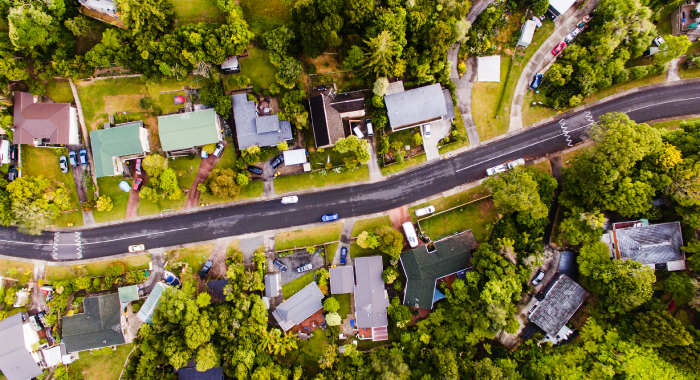There’s so much to think about when it comes to buying a home! Before you decide on a price point and start shopping for your new abode, it’s a smart idea to consider the upfront costs of homebuying – including down payment, closing costs, optional attorney fees and so on. Buying a home is likely the biggest purchase you’ll ever make, so don’t be afraid to ask questions and study up on all the costs involved.
Read on for a quick guide to the most common upfront costs of homebuying you can expect; and check out this HUECU homebuying handout to help you calculate costs and save up for your new home.
Down Payment
How much you need to pay up-front for your home will depend on your lender, what shape your personal finances are in, and what type of mortgage you’re applying for. In general, it’s a good idea to have a minimum of 5% for a down payment and you may qualify for a 3% down payment. A 20% down payment is ideal and allows you to avoid Private Mortgage Insurance but is not realistic for many first time homebuyers in the current market environment. Do keep in mind that if your credit score is under 620, you will likely need to improve your credit in order to qualify for conventional financing.
Closing Costs
Closing costs may include title insurance, appraisal fees, credit report charges and anything else associated with the complex process of buying a home. When completing your mortgage application, take a look at the Loan Estimate, which is a document provided at application that will deliver you with the terms, projected payments and fees associated with your loan. This is a useful comparison tool to shop for the best loan to fit your needs, so be sure to review this document with your loan officer to understand more about closing costs.
While fees vary for every homebuying transaction, you should plan on spending around 1-2% of the purchase price in closing costs. At the same time, some lenders including HUECU can offer a “No Points, No Closing Cost” option, although this will affect interest rates. Again, the best step is to budget accordingly in advance and speak with your homebuying finance team about what’s right for you and your budget.
Home Inspection
Costs for the basic home inspection are not covered under closing costs. Instead, this is a fee that you will pay to the home inspector of your choice. Home inspections typically cost around $300 to $500 – but the spend is well worth it! A home inspection will point out any critical issues related to your potential new home, including safety issues and major and minor defects. All of this information may affect your decision to purchase the home and it can help you to negotiate on home costs, depending on what the inspection reveals. The home inspection usually takes place after your offer has been accepted and before you sign the Purchase and Sale Contract. If the home inspection is not satisfactory you can renegotiate terms or exit the transaction. The home inspection fee would not be reimbursed.
While it’s true that home inspection is yet another hundreds of dollars in costs, the price tag is well worth it to ensure you’re paying a fair price for the house. A home inspector will look at a number of different areas, including the house’s foundation to check for cracks or settling, electrical wiring to ensure outlets are functional and there are no safety issues, heating, ventilation and air conditioning, and lots more.
New Homeowner Expenses
If you can budget ahead of time for your new homeowner expenses, you’ll be much better equipped to enjoy your new home, rather than worrying about how to pay for everything you need!
The immediate costs that come with moving into a new home will likely include repairs, new appliances and furniture, and of course any fees for your professional team of movers. Depending on the age or state of your home, plan to spend around 1% of the value of your house each year on general upkeep and maintenance. As always – the upfront cost to keep something in good shape will usually save you more money in the long run!





